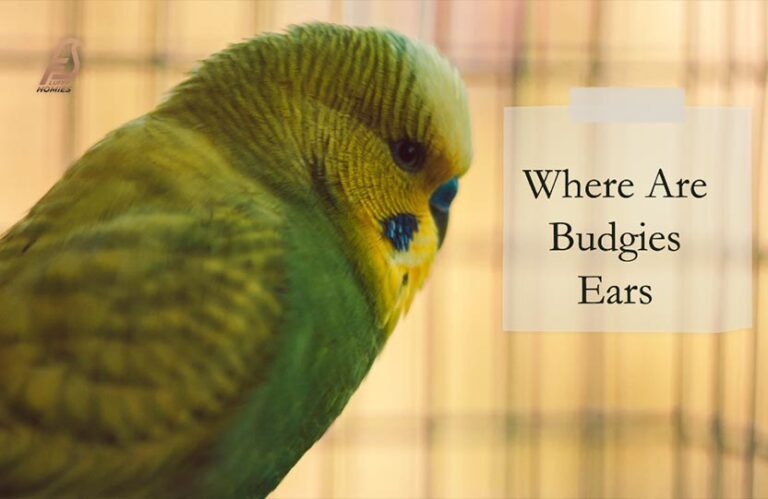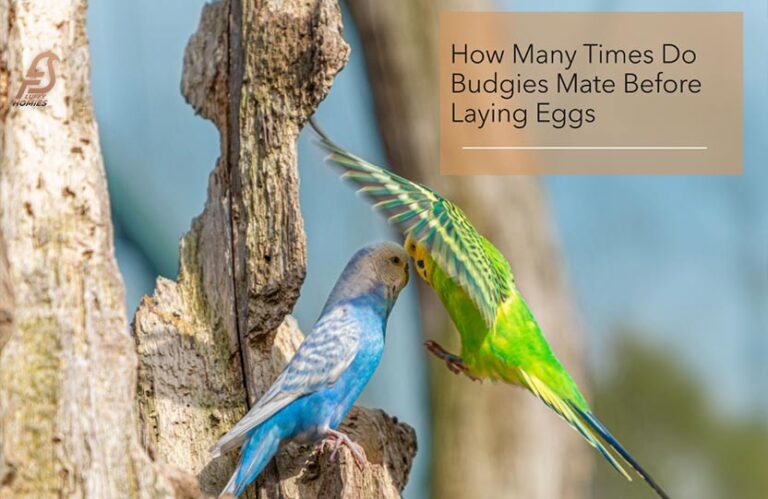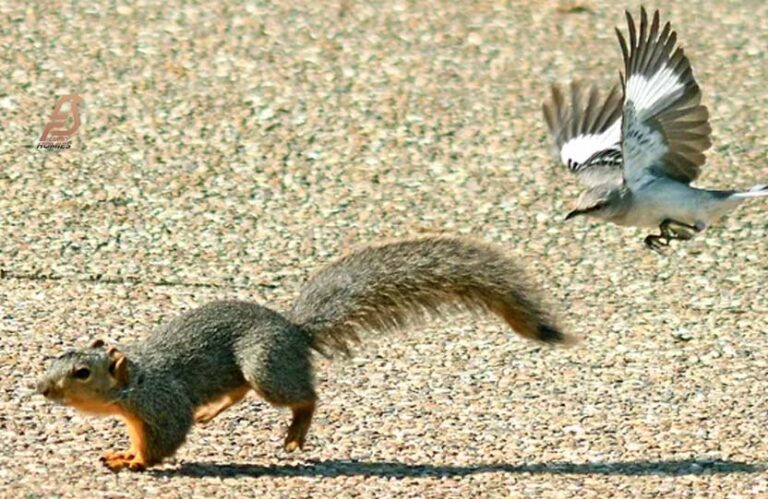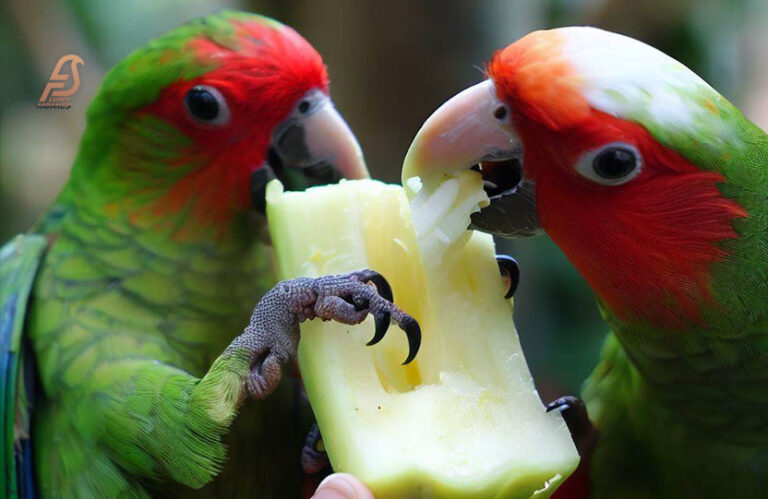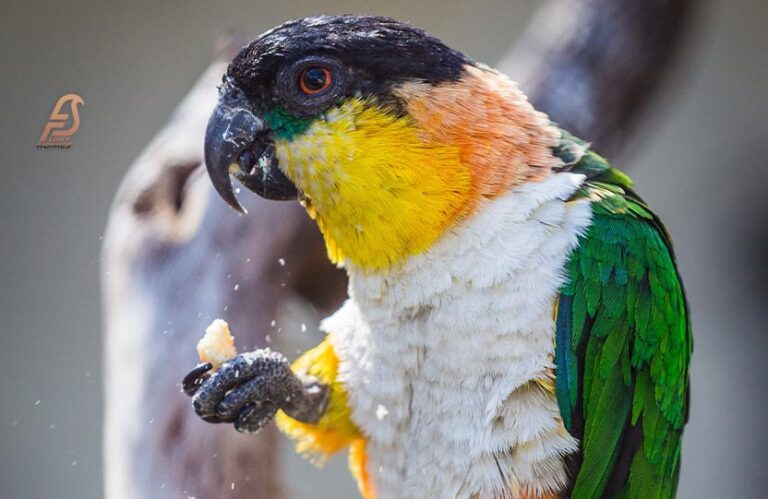Decode Bird Behavior: Is My Budgie Molting or Sick? (2023)
Budgies are cherished pets known for their vibrant colors, playful nature, and ability to mimic sounds and words. They have a unique charm that captivates bird lovers of all ages.
However, just like any other pet, budgies can experience health issues or go through natural processes that may require our attention and care.
One specific concern that arises for budgie owners is understanding whether their feathered friend is going through a molt or if there might be an underlying illness causing changes in their appearance or behavior.
Molting, a natural process in which budgies shed old feathers and grow new ones, is a normal part of their lifecycle. But when do molting occurs in birds also a curious question.
However, it is important to differentiate between molting and potential sickness to ensure proper care and timely intervention when necessary.
In the following sections, we will delve into the signs and symptoms of molting and illness in budgies, discuss the duration of molting, and provide guidance on when to be concerned.
Additionally, we will explore how to differentiate between molting and illness, offer tips on caring for a sick or molting budgie, and highlight the behavioral changes that may occur during the molting process.
Is My Budgie Molting or Sick?
Molting is a natural and necessary process for budgies. It is essential to differentiate between normal molting and signs of illness.
Signs of Molting in Budgies
Molting in budgies is a natural process just like budgies talking in sleep characterized by the shedding of old feathers and the growth of new ones.
Recognizing the signs of molting can help you understand what your budgie is going through and provide appropriate care and food like parsley and more during this time.
Here are some common signs of molting to look out for:
Feather Loss
One of the primary signs of molting is feather loss. During the molt, your budgie will shed old feathers, which may result in the appearance of loose feathers in and around their cage.
It’s normal for budgies to experience varying degrees of feather loss during the molt. Don’t worry you can also treat their broken feathers also.
Presence of Pin Feathers
Pin feathers are new feathers that are in the process of growing. They appear as small, pointed structures emerging from the skin.
These feathers are covered with a protective sheath, which your budgie will eventually preen and remove to reveal the mature feather underneath. The presence of pin feathers is a clear indication that your budgie is in the molting process.
Changes in Feather Appearance
As your budgie molts, you may notice changes in the appearance of its feathers. New feathers typically have a vibrant and glossy appearance.
They may have different colors or patterns compared to the old feathers they are replacing. Keep an eye out for these changes as a positive indication of healthy feather growth.
Increased Preening
During molting, budgies will engage in more preening behavior to take care of their growing feathers.
They will use their beak to align and clean the new feathers, removing any debris or remnants of the protective sheath around the pin feathers. This increased preening activity is a natural part of the molting process.
Also Check: Why Is My Bird Breathing Fast?

Temporary Changes in Behavior
As mentioned earlier, budgies may exhibit temporary changes in behavior during molting. This can include increased irritability, decreased activity levels like climbing, and changes in appetite and budgies are going to starve themselves.
These behavioral changes are generally a result of the physical discomfort and energy expenditure associated with molting.
Regrowth of Feathers
As the molting process progresses, you will start to notice the regrowth of feathers. The new feathers will gradually replace the old ones, leading to a complete molt.
It’s important to be patient during this time, as feather regrowth takes time, and the molt may occur in stages.
Symptoms of Budgie Sickness
Budgies molt naturally, but being mindful of signs pointing towards disease needing veterinary care is essential.
Here are some common symptoms of budgie illness to watch out for:
Changes in Droppings
Monitor your budgie’s droppings regularly. May indicate an underlying condition, any noticeable changes in color, texture, or frequency.
Decreased droppings frequency or signs of illness including bloody or discolored feces, excessive wet dropping or your birds eat poop can indicate an issue. Changes like this could suggest gastrointestinal disorders or illnesses.
Respiratory Distress
A possible respiratory disease or issue could be indicated if your bird shows signs like shortness of breath, chirping, honking, nose-breathing that sounds different than normal, or any other strange breathing patterns, says Dr. Sarah Wooten, veterinarian and owner of Animal House Veterinary Centers.
If you notice such signs, immediate medical attention should be sought to forestall worsening respiratory conditions.
Weight Loss or Gain
Rapid weight loss or gain in budgies can be a sign of an underlying health problem. Monitor your budgie’s weight regularly by using a gram scale.
Significant weight changes, especially when accompanied by other symptoms, may indicate an illness that requires professional evaluation.
Lethargy and Weakness
If your budgie appears excessively lethargic, weak, or inactive, it could be a sign of illness. Due to this budgies sometimes panting and feel coldness.
Budgies are generally active and curious birds, so a noticeable decrease in energy levels or a reluctance to engage in usual activities may warrant a veterinary examination.
Abnormal Plumage
Any notable changes in your bird’s plumage demand close observation. Unrelated to molting, there may be suddenly lost feathers.
Dullness, discoloration, fraying feathers may all signal a possible heath problem underneath.
Changes in Appetite and Thirst
Significant increases or decreases in thirst and appetite could indicate health concerns in budgies. Eating and drinking habits should be closely monitored when it comes to your budgie.
Evaluated by a veterinarian must any sudden change of appetite, excessive thirst, or unwillingness to consume food or fluids.
Behavioral Changes
Changes in behavior, no matter how minute, can signal a problem with your budgie. Changes in aggression levels, vocalizations, sleep patterns, or social behavior may indicate this condition.
Behavioral alterations outside of molting should prompt a meeting with a veterinarian.
Why Is My Budgie Molting More Frequently?
Sometimes budgies molt often due to some causes. While molting in budgies typically occurs once or twice a year, there are instances where budgies may experience more frequent molts.
Understanding the reasons behind increased molting frequency can provide valuable insights into your budgie’s health and well-being.
Age
One common factor that can contribute to more frequent molting in budgies is their age. Young budgies, especially those under one year old, experience more rapid growth and development.
As they transition from their juvenile plumage to their adult plumage, they may undergo more frequent molts. This is a natural process for young budgies as they reach maturity.
Environmental Changes
Changes in the budgie’s environment can also influence its molting frequency. Budgies are sensitive creatures, and alterations in their surroundings can trigger molt cycles.
Some environmental factors that may impact molting include:
Light Exposure
Budgies are sensitive to changes in daylight duration. Variations in natural light, such as during seasonal changes, can stimulate molting in some budgies.
Temperature and Humidity
Extreme temperature fluctuations or excessively dry or humid conditions can affect the molt cycles of budgies.
It’s important to provide a comfortable and stable environment to minimize any potential disruptions to their molting patterns.
Diet
Nutritional deficiencies or imbalances can impact the overall health of budgies, including their feathers. A poor diet lacking essential vitamins and minerals necessary for feather growth can lead to abnormal molting.
Ensure your budgie is receiving a well-balanced diet consisting of fresh fruits like guava for birds, vegetables may include kale, high-quality pellets, and occasional treats.
How Long Does a Budgie Molt Last?
The duration of a budgie molt can vary from bird to bird, and even within the same bird from one molt to another. On average, a budgie molt lasts a few weeks.
However, it’s important to note that individual variations are common, and some budgies may complete their molt faster, while others may take a bit longer.
Factors such as the budgie’s age, overall health, and environmental conditions can influence the duration of the molt.
Younger budgies tend to have shorter molts, as they primarily molt their juvenile feathers while transitioning to their adult plumage.
Older budgies, on the other hand, may have more extensive molts, as they replace a larger number of feathers.
Also Check: Why Do Budgies Love To Be Touched?
Does Molting Make a Parakeet Sick?
Molting itself is a natural and healthy process for parakeets and does not make them sick.
However, it’s important to note that the molting period can be physically and emotionally taxing on a budgie, which may impact their overall well-being.
During molting, budgies undergo significant physiological changes as they shed old feathers and grow new ones.
This process requires energy and resources from their bodies. As a result, some budgies may experience temporary stress or a slight decrease in their immune system’s effectiveness.
While these physiological changes may make budgies more vulnerable to certain health issues, molting itself does not directly cause illness.
It’s important to ensure that your budgie’s environment is clean, stress-free, and conducive to proper feather growth during the molting process.
This includes maintaining a balanced diet, providing opportunities for bathing, and minimizing any potential sources of stress.
When to Be Concerned About Molting?
While molting is a normal process for budgies, there are certain situations during the molt that may warrant closer attention and veterinary care.
It’s important to be aware of the following signs and symptoms that indicate there may be underlying issues or complications during the molting process:
Abnormal Feather Loss
While some feather loss is expected during molting, excessive or patchy feather loss may indicate a problem. If you notice bald patches or areas where feathers are not regrowing, it’s important to consult with a veterinarian.
Changes in Appetite or Weight Loss
Molting budgies may have a slightly decreased appetite, but a significant decrease in food intake or noticeable weight loss could be a sign of illness. Monitor your budgie’s eating habits and consult a veterinarian if there are any concerns.
Decreased Activity or Lethargy
While mild changes in activity level are normal during molting, prolonged lethargy or a noticeable decrease in your budgie’s energy and engagement may indicate an underlying issue.
If your budgie appears unusually inactive or unresponsive, it’s important to seek veterinary advice.
Respiratory Problems
Molting budgies are susceptible to respiratory issues, especially if they are exposed to drafts or poor air quality.
Signs of respiratory problems include wheezing, sneezing, nasal discharge, or labored breathing. If you observe any respiratory symptoms, consult a veterinarian promptly.
Also Read: Why Do Budgies Adjust Their Crops?
How to Care for a Sick or Molting Budgie?
When your budgie is sick or going through the molting process, providing appropriate care is crucial to support their health and well-being.
Here are some essential tips to help you care for your budgie during these times:
Create a Calm and Stress-Free Environment
During molting or illness, it’s important to provide your budgie with a quiet and calm environment.
Minimize loud noises, excessive handling, and any potential sources of stress. Ensure their cage is located in a draft-free area, away from direct sunlight, extreme temperatures, and any harmful fumes.
Offer a Balanced and Nutritious Diet
Proper nutrition is essential for your budgie’s overall health, especially during molting or illness. Offer a well-balanced diet that includes fresh fruits, vegetables, high-quality pellets, and occasional treats.
Consult with an avian veterinarian to ensure you are meeting your budgie’s specific dietary needs.
Maintain Hygiene and Cleanliness
Maintain a clean environment for your budgie to prevent the spread of germs and minimize the risk of infection if you having more than one budgies in the same cage.
Regularly clean their cage, perches, food and water dishes, and toys. Provide fresh water daily and ensure the cage bedding is dry and free of mold or mildew.
Monitor Hydration and Bathing
Ensure your budgie has access to fresh water at all times. Some budgies may be reluctant to drink during molting or illness, so consider providing a shallow dish or misting them with lukewarm water to encourage bathing and hydration.
Consult with your veterinarian for specific bathing recommendations based on your budgie’s condition.
Seek Veterinary Care
If you notice any concerning symptoms or changes in behavior, or if you have doubts about your budgie’s health, seek veterinary care promptly.
An avian veterinarian can provide a thorough examination, diagnose any underlying issues, and recommend appropriate treatments or medications.
Provide Emotional Support
During molting or illness, budgies may feel vulnerable and require additional emotional support.
Spend quality time near their cage, talk to them in a calm and soothing voice, and provide gentle interactions when they are receptive. However, always respect their need for rest and solitude.
Conclusion — Is My Budgie Molting or Sick?
Understanding whether your budgie is molting or sick is essential for providing appropriate care and ensuring their well-being.
However, it’s crucial to differentiate between molting and signs of illness in budgies. Some budgie illnesses may manifest with symptoms similar to molting, making it important to be observant and vigilant.
If you have any concerns about your budgie’s health or are unsure whether they are molting or sick, it’s best to consult with an avian veterinarian.
A professional evaluation can provide you with a proper diagnosis and guidance on how to care for your budgie.
Remember, creating a calm and stress-free environment, providing a balanced diet, maintaining cleanliness, and seeking veterinary care when necessary are all essential aspects of caring for a sick or molting budgie.
Also Read: Why Do Budgies Talk in Their Sleep?
FAQ — Is My Budgie Molting or Sick?
Do budgies feel unwell when molting?
Budgies may experience mild discomfort while molting due to itching and feather loss, but it is a normal process for them and they usually do not feel significantly unwell.
How do budgies act when molting?
During molting, budgies may become more irritable, spend more time preening, and exhibit increased feather fluffing. They may also have temporary changes in appetite and energy levels.
Can I prevent molting in my budgie?
Molting is a natural process in budgies, and it cannot be prevented. It is a necessary part of their growth and feather maintenance.


